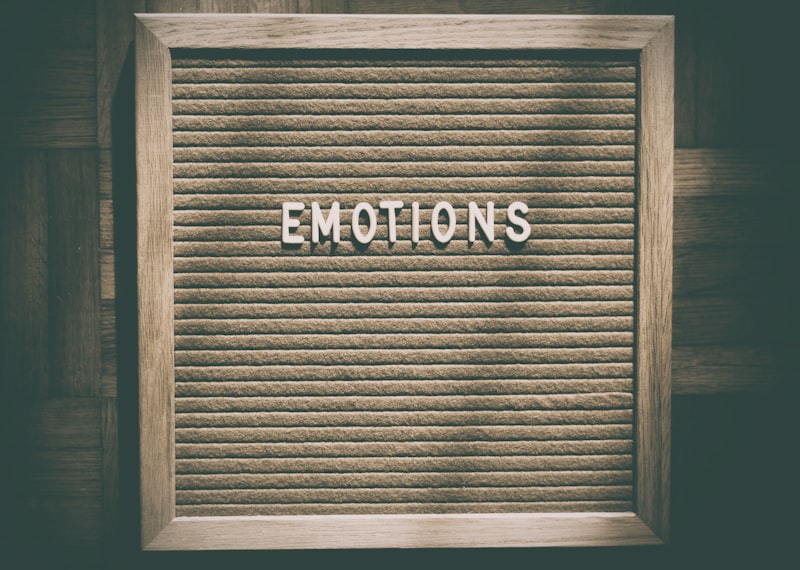At its core, emotional intelligence is about being aware of your own emotions and those of others, and using that awareness to manage your behavior and relationships effectively. It’s like having a radar that picks up on subtle emotional cues—both yours and others’. This ability to tune in and respond appropriately can make or break a relationship.
Think about a time when you felt truly understood by someone close to you. Chances are, that person was emotionally intelligent. They didn’t just hear your words; they sensed your feelings behind them. This kind of empathy fosters deep connections because it shows that you care about the other person’s experience.
On the flip side, imagine someone who is emotionally tone-deaf. They might unintentionally hurt others’ feelings or struggle to connect on a meaningful level. This lack of emotional intelligence can lead to misunderstandings, conflicts, and ultimately, strained relationships.

In personal relationships, EI acts as a glue that binds partners together through life’s ups and downs. It allows you to communicate effectively, resolve conflicts respectfully, and support each other through challenges. When both individuals possess high emotional intelligence, they create a safe and nurturing environment where both can thrive.
Moreover, emotional intelligence isn’t just beneficial in romantic relationships; it applies to friendships, family dynamics, and even professional interactions. In any social setting, being attuned to emotions can help you build trust, foster collaboration, and lead with empathy.
Nurturing emotional intelligence isn’t just about being “nice”; it’s a skill that empowers you to build deeper, more fulfilling relationships. By honing your emotional radar and practicing empathy daily, you can transform the way you connect with others and enrich your personal life immeasurably. Emotional intelligence isn’t just a soft skill—it’s the heart of meaningful relationships.
Navigating Love and Understanding: The Crucial Role of Emotional Intelligence in Relationships
Ever wondered what makes some relationships thrive while others struggle? It often boils down to more than just chemistry or shared interests. Emotional intelligence (EI) plays a pivotal role in how we connect with others on a deeper level.
So, what exactly is emotional intelligence? It’s the ability to recognize and manage your own emotions while understanding and influencing the emotions of others. In relationships, this means being aware of your feelings and those of your partner, and using this awareness to navigate the ups and downs that come with any relationship.
Imagine emotional intelligence as a compass guiding you through the stormy seas of love. When you’re tuned in to your emotions, you’re better equipped to communicate effectively, empathize genuinely, and resolve conflicts peacefully. It’s like having a superpower that fosters trust, respect, and intimacy.
Think about a time when you felt truly heard and understood by your partner. Chances are, emotional intelligence was at play. When both partners possess EI, they’re able to create a safe and supportive environment where both individuals can flourish personally and as a couple.
Conversely, a lack of emotional intelligence can lead to misunderstandings, resentment, and distance in relationships. Without the ability to recognize and regulate emotions, small disagreements can escalate into major rifts.
In essence, emotional intelligence isn’t just a nice-to-have trait in relationships; it’s essential for their long-term success. It allows couples to weather storms together, celebrate joys more deeply, and grow stronger as a unit.
Next time you find yourself navigating the complexities of love, remember that emotional intelligence could be the key to unlocking deeper connections and a more fulfilling relationship. Start by tuning into your own emotions and practicing empathy towards your partner. You might just find that your relationship blossoms in ways you never imagined possible.
Building Stronger Bonds: How Emotional Intelligence Enhances Relationship Resilience
But what exactly is emotional intelligence? At its core, EI refers to the ability to recognize and manage one’s own emotions while understanding and influencing the emotions of others. It’s like having a finely tuned radar for feelings – both yours and those around you.
Imagine you’re sailing on a stormy sea. Emotional intelligence acts as your compass, guiding you through turbulent waters and helping you navigate towards calmer shores. It enables you to communicate effectively, empathize deeply, and resolve conflicts constructively – all essential ingredients for fostering strong, enduring bonds.
In relationships, resilience is the name of the game. It’s about weathering the inevitable storms together and emerging stronger on the other side. Emotional intelligence provides the tools needed to bounce back from setbacks, learn from misunderstandings, and grow closer through shared experiences.

Think of emotional intelligence as the glue that holds relationships together. It’s not just about what you say, but how you say it; not just about what you do, but how you make others feel. When you’re attuned to your own emotions and responsive to those of others, you create an environment of trust, respect, and mutual support.
In essence, building stronger bonds through emotional intelligence is a journey of self-discovery and connection. It’s about recognizing the power of emotions in shaping our interactions and consciously choosing to nurture meaningful relationships. By harnessing the principles of EI, individuals and couples alike can cultivate deeper intimacy, resolve conflicts more effectively, and ultimately, cultivate relationships that stand the test of time.
From Conflict to Connection: Harnessing Emotional Intelligence for Harmonious Relationships
Emotional intelligence isn’t just about being aware of our feelings; it’s also about understanding others’ emotions and using that awareness to manage interactions effectively. Imagine EI as the bridge that spans across turbulent waters, connecting individuals through mutual respect and compassion.
One of the core aspects of EI is self-awareness. It’s like having a mirror that reflects not just our surface emotions but also the underlying currents that shape our reactions. By understanding our emotional triggers and patterns, we gain better control over how we respond in relationships. This self-awareness forms the bedrock upon which we can build trust and intimacy with others.
Another vital component is empathy—the ability to step into someone else’s shoes and see the world from their perspective. Empathy isn’t just a soft skill; it’s a transformative force that fosters connection. When we empathize, we acknowledge the validity of someone else’s emotions, creating a safe space where they feel heard and understood.
Effective communication, another pillar of EI, is akin to a dance where partners move in synchrony, anticipating each other’s steps. Clear, open communication nurtures transparency and prevents misunderstandings from snowballing into conflicts. It’s about expressing ourselves honestly while listening attentively to what others have to say.
Lastly, emotional intelligence teaches us the art of conflict resolution. Instead of viewing conflicts as battles to be won or lost, EI encourages us to seek solutions that benefit all parties involved. It’s about finding common ground and negotiating compromises that uphold the integrity of the relationship.
In essence, harnessing emotional intelligence isn’t just a personal journey—it’s a gift we give to our relationships. It transforms discord into harmony, misunderstanding into connection, and enriches our lives with deeper, more fulfilling interactions. So, as we navigate the intricate tapestry of human connections, let emotional intelligence be our guiding light towards a more harmonious world.
The Empathy Advantage: Why Emotional Intelligence Matters in Intimate Partnerships
At its core, emotional intelligence in relationships revolves around one’s ability to recognize, understand, and manage emotions—both one’s own and those of their partner. It’s like having a finely tuned radar that can pick up on subtle emotional cues, allowing you to respond with empathy and sensitivity.
Think of a time when your partner seemed upset but didn’t say a word. Your emotional intelligence kicked in as you sensed their mood shift, prompting you to ask gently, “Is everything okay?” This simple act shows that you’re attuned to their feelings, fostering a deeper connection built on trust and understanding.
Moreover, emotional intelligence isn’t just about being aware; it’s also about how you handle emotions in the heat of the moment. During disagreements, for instance, someone with high EI can navigate conflict with grace, choosing words and actions that don’t escalate tension but instead seek resolution and mutual understanding.
In essence, cultivating emotional intelligence in intimate relationships isn’t just beneficial—it’s essential. It allows partners to communicate effectively, navigate challenges with resilience, and celebrate joys with genuine warmth. It’s like having a compass that guides you through the ups and downs of love, helping you weather storms and cherish sunny days together.
Ultimately, the empathy advantage in intimate partnerships lies in its power to deepen emotional bonds and foster a supportive environment where both individuals can thrive. When partners practice emotional intelligence, they create a space where vulnerability is met with compassion, and love grows stronger with each passing day.
Beyond Words: How Emotional Intelligence Transforms Communication in Relationships
Imagine EI as a set of finely tuned antennas that pick up on subtle emotional cues—like the quiver of a lip or the sparkle in someone’s eye. It goes beyond mere words, delving into the unspoken language of feelings and empathy. When you’re emotionally intelligent, you’re not just hearing the words; you’re deciphering the emotions behind them, like a skilled codebreaker piecing together a message.
In practical terms, this means being attuned to both your own emotions and those of others. It’s about being aware of how your words and actions impact someone else’s emotional state. Picture a dance where each step is guided not by a predetermined routine but by an intuitive sense of rhythm and harmony.

Communication, infused with EI, becomes a dynamic interplay rather than a monologue. It’s like playing a musical duet where each note resonates with the other, creating a symphony of understanding. Have you ever had a conversation that felt so fluid and effortless, almost like both of you were speaking the same emotional language? That’s the magic of EI at work.
Moreover, emotional intelligence isn’t just a soft skill; it’s a game-changer in relationships. It allows partners to navigate conflicts with grace, offering a bridge over troubled waters. Instead of escalating into a shouting match, EI encourages a dialogue that seeks mutual understanding and resolution.
In essence, EI transforms communication into a profound exchange—one where vulnerability is met with compassion and where disagreements pave the way for deeper insights. It’s the difference between simply hearing and truly listening, between speaking and being heard.
So, the next time you find yourself in a conversation, remember: there’s more to it than just words. Emotional intelligence is the secret ingredient that turns ordinary interactions into extraordinary connections. It’s the art of communication, elevated to a whole new level.
Emotional Intelligence: The Key to Sustaining Long-Term Relationship Satisfaction
Imagine emotional intelligence as a compass that helps navigate stormy seas and enjoy serene waters alike. It’s the ability to recognize feelings in ourselves and others, empathize with different perspectives, and skillfully handle interpersonal conflicts. In a relationship, this translates into being attuned to your partner’s emotional cues — knowing when they need a listening ear or a comforting embrace.
Picture this: You come home after a long day, feeling drained and irritable. Instead of snapping at your partner, emotional intelligence prompts you to communicate your feelings calmly or take a moment to collect yourself. This small act of self-awareness and self-regulation can prevent misunderstandings and strengthen emotional bonds over time.
Furthermore, emotional intelligence fosters openness and vulnerability, crucial ingredients for intimacy. It encourages authentic communication where partners feel safe expressing their deepest thoughts and fears without fear of judgment. This level of emotional intimacy cultivates trust and strengthens the foundation of a long-term relationship.
Moreover, emotional intelligence extends beyond understanding emotions; it includes the ability to motivate oneself and others, persevere through challenges, and maintain a positive outlook. In relationships, this means supporting each other’s goals, celebrating successes, and providing reassurance during setbacks. It’s about being a team player in life’s ups and downs.
Ultimately, nurturing emotional intelligence requires practice and patience. It’s a journey of self-discovery and growth that enhances not only relationship satisfaction but also overall well-being. By honing our emotional intelligence skills, we pave the way for deeper connections, mutual respect, and enduring love.
Emotional Awareness in Love: Strengthening Bonds Through Self-Understanding
Imagine love as a delicate plant. It needs nurturing, attention, and understanding to flourish. Similarly, emotional awareness provides the nourishment that love requires to thrive. When individuals are attuned to their own emotions, they become better equipped to navigate the complexities of relationships. They can communicate their feelings effectively, express empathy towards their partner, and handle conflicts with grace.
Moreover, emotional awareness fosters self-understanding. It allows individuals to recognize their triggers, vulnerabilities, and strengths. This self-awareness is crucial in love because it enables people to approach their relationships from a place of authenticity and honesty. When partners are in tune with their emotions, they can share their true selves more fully, creating an environment of trust and mutual respect.
In essence, emotional awareness in love is like having a compass that guides you through the peaks and valleys of a relationship. It helps you decipher your own emotions and decode those of your partner. This ability to empathize and connect on a deeper level cultivates intimacy and strengthens the emotional bonds between two people.
Furthermore, emotional awareness encourages personal growth within the relationship. As individuals become more aware of their emotions, they are motivated to work on themselves, heal past wounds, and evolve into better partners. This continuous process of self-improvement not only benefits the individuals but also enriches the quality of their relationship over time.
Emotional awareness is not just a skill; it’s a cornerstone of love. By understanding and embracing their emotions, individuals can nurture healthier, more fulfilling relationships. This journey of self-discovery and emotional growth paves the way for deeper connections and lasting happiness in love.
Frequently Asked Questions
What is emotional intelligence and why is it important in relationships
Understand emotional intelligence’s role in relationships. Learn why it matters for better communication, empathy, and conflict resolution.
How can emotional intelligence enhance communication in personal relationships
Learn how emotional intelligence improves personal relationships by enhancing empathy, understanding emotions, and fostering effective communication skills.
How does emotional intelligence help in resolving conflicts in relationships
Learn how emotional intelligence can effectively resolve conflicts in relationships by enhancing empathy, communication skills, and the ability to manage emotions, leading to better understanding and collaborative problem-solving.
What are the benefits of developing emotional intelligence for relationship success
Discover how enhancing emotional intelligence can foster successful relationships by improving communication, empathy, and conflict resolution skills.
What practical steps can I take to improve my emotional intelligence for better relationships
Learn practical steps to enhance emotional intelligence for improved relationships, focusing on self-awareness, empathy, and effective communication.


